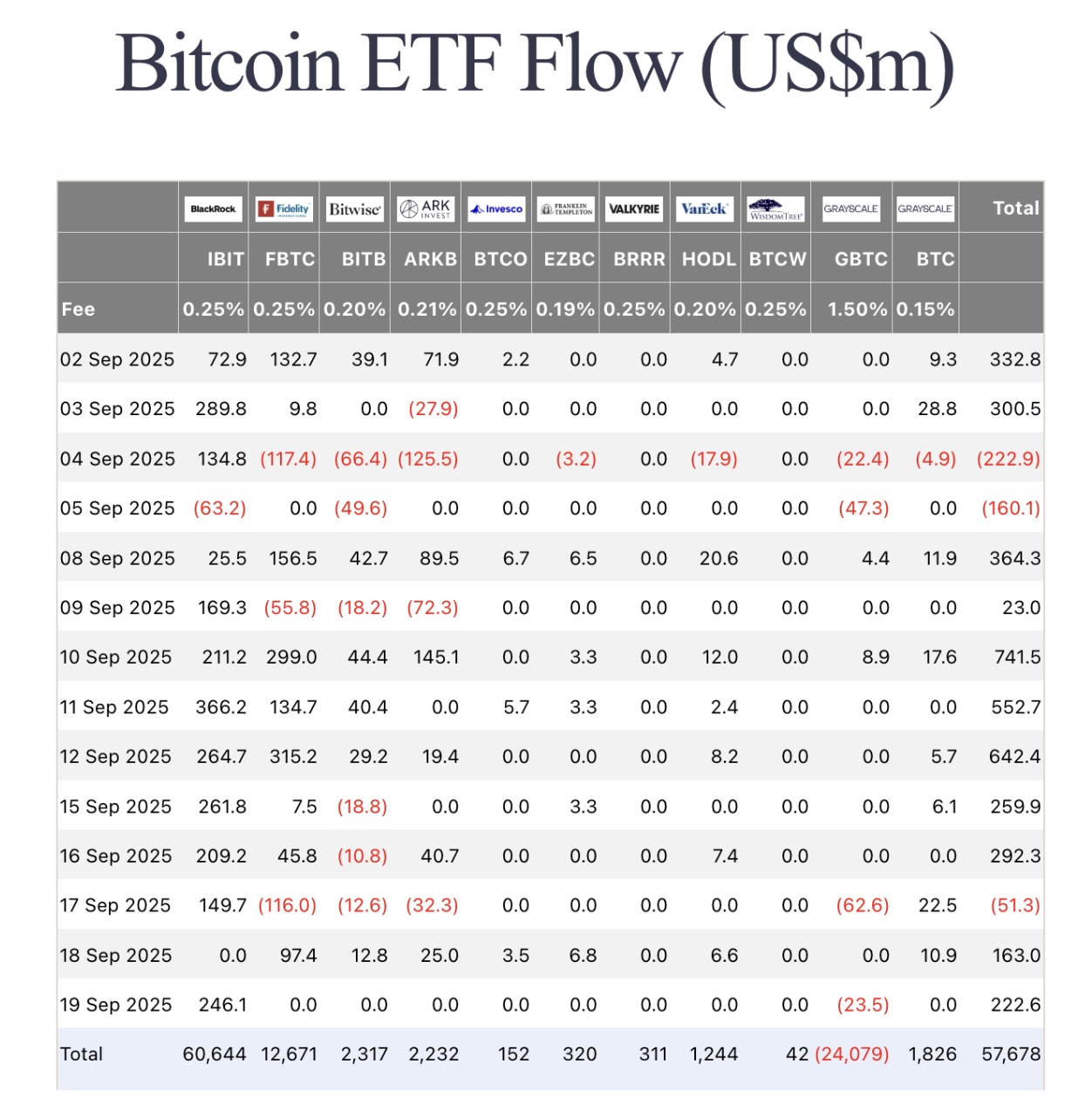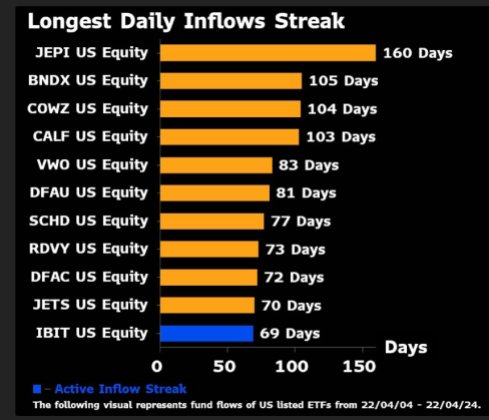
2019-2-11 05:30 |
Many analysts believe the approval of a bitcoin ETF could lead to the biggest bull run in crypto history. That’s certainly possible. It’s also possible that a bitcoin ETF could lead to short-term gains and long-term losses. Or, the denial of a bitcoin ETF could cause markets to plummet.
The SEC will either approve, deny, or delay multiple upcoming decisions regarding a cryptocurrency exchange traded fund (over 9 different crypto ETFs from now until end of September). The successful approval of a bitcoin ETF could spark the biggest bull run in history. It would be the first time a US governmental institution approved bitcoin as an investment vehicle.
We have no idea if the SEC will approve or deny a bitcoin ETF. Just days ago, the SEC rejected the ETF proposed by the Winklevoss twins and their crypto exchange Gemini. Based on that rejection, it seems unlikely the SEC would suddenly reverse its decision.
Nevertheless, optimistic members of the crypto community are pointing towards late 2017 as evidence. In late 2017, bitcoin futures contracts were approved for trading. In September, bitcoin was priced at around $3500. By the end of the year, bitcoin had smashed past $10,000. On December 1, the day CME futures were officially launched, bitcoin topped at $20,000. Then we had the incredible news of NYSE's parent company ICE launching Bakkt cryptocurrency platform that is nothing short of amazing and revolutionary in its own right.
When bitcoin's latest exchange traded fund proposal got delayed, not even suddenly declined, it sunk to lows of $5,900 before settling into the $7,000 range and currently around $6,300.
Over the last few weeks, bitcoin did surge above $8,300 in anticipation of a bitcoin ETF approval. Optimistic investors are jumping back on board. They know that if a bitcoin ETF is approved, it would likely start an enormous bull run. However, given the CBOE VanEck SolidX delay until September 30, the bulls returned home and the bears came out of hibernating sinking the price back down toward year end lows.
That’s the background behind a bitcoin ETF. Now, let’s take a closer look at the importance of a bitcoin ETF and why people expect the price to rise over time.
What is an ETF?An ETF is an exchange traded fund. It’s a financial product that tracks the performance of an index – like the S&P500 – or a commodity – like gold or oil – or a basket of assets. ETFs are traded like stocks, with prices fluctuating throughout the day as traders buy and sell their shares in an ETF.
The advantages of an ETF are obvious: you can take a position in an asset without actually purchasing that asset directly. You don’t have to buy a barrel of oil and store it in your backyard. Instead, you can gain exposure to an asset in a liquid and easy way.
A bitcoin ETF would offer similar advantages. It would allow ordinary investors to gain exposure to bitcoin. Investors wouldn’t need to worry about bitcoin storage or security. Instead, this responsibility is in the hands of the ETF provider.
It’s important to note that the ETF provider still holds bitcoin. By buying shares in the ETF, investors are getting a stake in the bitcoins owned by the fund.
How Will Crypto ETFs Work?There are three broad types of crypto ETFs:
Bitcoin ETF: Bitcoin is the best-known cryptocurrency. If a crypto ETF is to be approved, then it seems likely bitcoin would be the first ETF.
Altcoin ETF: In the future (or even before a bitcoin ETF), we could see someone launch an altcoin ETF. Someone could launch an Ether (ETH) ETF, for example, or a Litecoin ETF.
A Crypto Basket: At least one of the ETFs submitted for approval to the SEC consists of a basket of crypto funds. Instead of owning exclusively bitcoin or Ether, this basket holds a basket of cryptocurrencies. The ETF being proposed, for example, holds the top 10 cryptocurrencies by market cap, balanced monthly relative to their weight. Bitwise is attempting to become the first company to push this proposal through.
Key Facts on a Bitcoin ETFRegulatory Body: SEC (USA)
Earliest Date for a Decision: August 16, 2018 (however 9 pending til September 30th)
Extensions: The SEC can defer a decision for up to 90 days.
ETF Submitted By: CBOE Global Markets
Rules of the ETF: The ETF would hold 25 bitcoins per share. Users cannot purchase partial shares in the ETF. That means the minimum investment in the proposed bitcoin ETF would be about $185k, based on a bitcoin price of $8400. The bitcoin ETF would be geared towards institutional investors and high net worth individuals.
Insurance: The proposed bitcoin ETF includes provisions for $25 million in primary coverage with additional coverage of up to $100 million. Insurance extensions beyond these amounts cannot be made.
Support: The ETF is widely supported by the cryptocurrency community. The SEC has received 250+ comments on their SEC posting, with over 95% of these comments being in favor of the ETF. At least one SEC commissioner, Hester Peirce, is in favor of the bitcoin ETF, although the rest of the SEC does not currently echo that opinion.
Real Asset Value: The proposed ETF will hold actual bitcoin. If the fund attracts $100 billion of investments, then it will need to purchase $100 billion of actual bitcoin in order for the ETF to be fully backed.
The First Bitcoin ETF Was Proposed All the Way Back in 2013The SEC has rejected a bitcoin ETF fifteen times in total. The latest rejection came this past week.
The first rejection, however, dates all the way back to 2013 when the Winklevoss twins sought to launch something called the Bitcoin Trust.
The Bitcoin Trust wasn’t specifically an ETF, but it looked and smelled enough like an ETF for the proposal to be denied.
Over the last five years, the SEC has rejected over a dozen other bitcoin ETFs. So why are people optimistic about the SEC’s stance changing? Why do people believe the SEC will approve a bitcoin ETF today?
Here’s how our friends at Total Crypto explained it:
“Most commentators believe that the latest ETF application will be approved due to how the ETF is structured. Average retail investors simply don’t have nearly $200k lying around to invest in Bitcoin. This means that the SEC’s main concern of protecting retail investors is satisfied.”
Cryptocurrency analysts and the CBOE believe the ETF meets all of the SEC’s ETF approval requirements. They also believe the crypto market has matured significantly over the last five years, quelling some of the SEC’s concerns of market manipulation and liquidity.
Would a Bitcoin ETF Raise Bitcoin Prices?It’s widely assumed that a bitcoin ETF would raise bitcoin prices.
Obviously, there’s the fact that the SEC is approving a bitcoin ETF, and indirectly putting their stamp of approval on the crypto industry.
But there’s another advantage: institutional investors and high net worth individuals are interested in investing in cryptocurrency, but they don’t currently have a good way to do it. The launch of a bitcoin ETF would give these groups an ideal way to invest in bitcoin. They could participate in the rise and fall of bitcoin markets without actually owning any bitcoin and their investments would be fully insured.
It’s important to remember that institutional investors are not legally permitted to own cryptocurrency. Institutional investors must abide by regulations. They can only buy licensed and regulated investment products, for example. Even if a hedge fund wanted to buy bitcoin, it would not be legally permitted to own bitcoin directly. With a bitcoin ETF, there’s a huge amount of money that could pour into the market in a short period of time.
A bitcoin ETF would also drive the market significantly higher purely for purchasing reasons. If the ETF secured $1 billion in investments, then the fund would need to purchase $1 billion in bitcoin. Obviously, a trade of this magnitude can’t be made all at once, but it would still put constant upward pressure on the market.
Bitcoin and Gold: A Tale of Two ETFsMany members of the crypto community have been pointing to gold as evidence of what can happen to an asset when an ETF launches. Since the first gold ETF was launched, the price of gold has risen significantly over time.
Gold and bitcoin might seem like two completely different assets, but there are a number of similarities between the two:
Both Gold and Bitcoin Are Scarce: There are only 21 million bitcoins in existence. 80% of these bitcoins have already been mined, and there are approximately 17.1 million bitcoins in circulation. Some bitcoins – some suggest as many as 4 million – have already been lost permanently (say, with destroyed private keys or unrecoverable addresses). Gold is similarly scarce. As pointed out by Total Crypto, the world’s total supply of gold would only fill 3.27 Olympic-sized swimming pools.
Both Gold and Bitcoin Are Universally Recognized: Gold has been a proven store of value for – quite literally – millennia. Bitcoin doesn’t have the same long history as gold, but it’s certainly recognized worldwide.
Both Gold and Bitcoin Increase in Value During Economic Crises: Gold is seen as a safe haven. Investors flock to gold when the economy is in turmoil. Bitcoin has shown similar properties. Bitcoin is a global currency that isn’t tied to any one nation’s economy. It could be the ultimate safe haven.
Both Gold and Bitcoin Can Operate Without the Global Banking System: You can buy a gold bar from someone without involving a bank. You can transfer bitcoin to someone without relying on a financial institution. Both gold and bitcoin can operate without the global banking system. The only “restriction” with bitcoin is that you do need electricity and the internet – an advantage gold has over bitcoin.
Data sources: Bitcoin: Coinmarketcap.com | Gold: datahub.io/core/gold-prices What Happened When the World’s First Gold ETF Launched?The world’s first gold ETF launched in 2003. Within months, gold went on the longest bull run in its history. Gold went from a price of $331.60 per ounce in the early 2000s, rising to a high of $1,917.90 by 2011.
If you bought gold when the ETF launched and sold at the all time high, then you would have earned a profit of 478%.
It’s important to note that gold futures, like bitcoin futures, launched before a gold ETF. Gold futures launched all the way back in 1974. Investors had to wait nearly 30 years before a gold ETF was launched.
Bitcoin futures were launched in December 2017. It seems unlikely that investors will have to wait 30 years for a bitcoin ETF.
Total Crypto spotted another similarity between gold and bitcoin futures: gold prices rose in the leadup to the launch of gold futures, then fell afterward. Bitcoin futures worked in a similar way, rising to an all time high in December and then plummeting shortly thereafter.
Market Speed: Bitcoin Versus GoldWhat about market speed? How do bitcoin markets compare to gold markets?
Bitcoin markets, as you might expect, move significantly faster than gold markets. As evidence, we can look at market cycles. Over the last 45 years, the gold market has seen seven prolonged bear markets that have led to a 30%+ fall in the price of gold. These negative correction periods have lasted as long as 6 years – like the prolonged downturn between 1988 and 1993. Overall, as pointed out by Total Crypto, the average bear market for gold is around 3 years, which is “an exceptionally long time.”
What about bitcoin?
With bitcoin, the longest bear market in history was 410 days – just over a year. The bear market from December 2017 until today – which feels like an eternity – has lasted under 250 days.
What does that mean? How will a faster market affect a bitcoin ETF? Here’s how Total Crypto explains it:
“This means that once the Bitcoin ETF is launched if the Bitcoin market follows a similar pattern to gold, we could see the Bitcoin price hitting an all-time high ten times as fast. That could mean a topping in price around 300 days after the Bitcoin ETF went live.”
What Do Analysts think About the Price of Bitcoin in 2018?You don’t have to look far online to find crazy predictions about the future of bitcoin. You can find – quite literally – any price prediction from $0 to $1 million per BTC.
The truth is: bitcoin is a new asset exploring uncharted territory. Nobody knows where that asset is going to go. A bitcoin ETF could be denied, and bitcoin could sink below $1,000. Or, a bitcoin ETF could be approved, and the price of bitcoin could rise above $50,000. Neither of these options seems too unlikely before the end of 2018.
Similarly, some analysts believe that a crypto ETF will be approved on August 16, 2018. Others say it will be denied in September 2018. Some say the SEC will continue delaying the decision for months.
Here’s what we do know, however:
Many prominent members of the bitcoin community believe bitcoin will reach a price of $10k to $50k in 2018 We know that millionaires, high net worth individuals, hedge funds, and institutional investors are interested in cryptocurrencies; if these groups put even 1% of their net worth towards crypto, it would change the market overnight Most people worldwide have heard of bitcoin, but only a small percentage of those people actually own bitcoin Major Wall Street firms like BlackRock and Fidelity are exploring the launch of crypto-related products Many institutional investors are waiting for regulated crypto custody services – like the one offered by Coinbase – before dipping into cryptoPerhaps one of the most optimistic stances on the future of bitcoin comes from Twitter CEO Jack Dorsey, who says,
“The world ultimately will have a single currency, the internet will have a single currency. I personally believe it will be bitcoin.”
Bitcoin Advantages Versus GoldToday, bitcoin has a total market cap of around $130 billion. Gold, meanwhile, has a market value of over $7 trillion. Bitcoin still has a lot of room to grow before it catches gold.
Gold has a few thousand years of history backing it. Bitcoin, meanwhile, has climbed significantly in just 10 years since launch. If it follows the same trajectory over time (which seems unlikely), then it will catch gold within just a few years.
There’s reason to believe bitcoin will grow while gold sinks. Bitcoin has a number of advantages over gold, including:
Cannot Be Forged: Bitcoin cannot be forged or replicated; some gold bars have lead cores, tricking people into thinking it’s a solid gold bar when it’s really worth only a fraction of that amount.
Portable: Bitcoin is more portable. You can carry $100 million in bitcoin in a mobile phone. You can carry $100 million in bitcoin using a phrase memorized in your head. Try carrying $100 million in gold between two countries. If you can memorize 20 words, then you can carry your bitcoin anywhere in the world with absolutely nothing else required.
Accepted by Merchants: You can buy real products and services with bitcoin. Walk around your local mall with an ounce of gold. Try to spend it. Gold is difficult to spend and is unlikely to be accepted at merchants or retailers. Bitcoin, meanwhile, has a growing network of merchants worldwide.
Convenient and Safe: Bitcoin is convenient and safe to use. You don’t have to store your bitcoin in a safety deposit box. You don’t have to buy an armored delivery truck to transport your bitcoin.
Risk of Government Confiscation: Satoshi Nakamoto and other prominent bitcoiners frequently point to 1933 as the reason bitcoin is so valuable. In 1933, the US government made it illegal for private citizens to own gold. The US government, overnight, attempted the seize all gold owned by private US citizens. This scenario is impossible with bitcoin.
Bitcoin Can Be Divided Into Miniscule Units: Try chopping up a gold bar into a spendable amount of money. With bitcoin, you can divide it into tiny components, making it easy to spend. There are 100 million Satoshis in each bitcoin.
Bitcoin ETF FAQs: Questions and Answers About Bitcoin ETFsThe much-anticipated bitcoin ETF would be a revolutionary moment in bitcoin history. Some analysts predict the approval of a bitcoin ETF would set off the longest bitcoin bull run in history.
Back in 2018, many were hopeful a bitcoin ETF could be approved as soon as September 21, 2018 but saw many delays and pauses as you see we are already in February of 2019 with no clear cut path towards acceptance.
But do you really understand how a bitcoin ETF would work? Do you know how any ETF works? Crypto analyst Yohay Elam recently highlighted 9 questions and answers about bitcoin ETFs, including everything you need to know in the leadup to the approval (or denial) of the world’s first bitcoin ETF.
What Is An ETF?An exchange traded fund, or ETF, is an investment fund dedicated to a specific market. Typically, an ETF follows an index on a stock exchange. By purchasing shares in an ETF, an investor can get exposure to the specific index without buying the underlying assets. You can purchase an S&P 500 ETF, for example, without needing to buy all 500 stocks in that index. Your share in that ETF rises and falls with the S&P 500. ETFs can also track the movement of a commodity – like gold. You can buy a gold ETF to gain exposure to the price of gold without actually needing to buy gold bars.
What Is A Bitcoin ETF?A bitcoin ETF, theoretically, would track the price of bitcoin. Some bitcoin ETFs are passively managed: the fund just holds bitcoin and rides the market movements of bitcoin. Other ETFs will be actively managed, which means the fund will actively buy and sell bitcoin in an effort to generate profit. From a consumer standpoint, a bitcoin ETF would allow anyone to gain exposure to bitcoin without directly buying bitcoin. You could watch your portfolio rise or fall with the price of bitcoin, for example, without ever worrying about security or storage or your bitcoin.
What About Other Crypto ETFs?Other crypto ETFs have been proposed. We’ve seen rumblings of Ethereum ETFs, for example. Companies have also proposed a crypto fund ETF that would hold a basket of currencies. The HOLD10 crypto ETF, for example, would hold the top 10 cryptocurrencies by market cap, with the percentage weighted by the market cap of each coin.
Why Should Crypto Users Care About A Crypto ETF?An ETF would make it much easier to invest in bitcoin. An ordinary person wouldn’t have to navigate a bitcoin exchange to gain exposure to bitcoin. Instead, they would just buy a share of an ETF – similar to how you’d buy any stock or ETF today using your trading account. A bitcoin ETF would help users avoid setting up a wallet, choosing an exchange, maintaining a storage solution, and performing all of the other steps needed to buy bitcoin. More importantly, a bitcoin ETF would also be the first major seal of approval for cryptocurrencies: it would be the first signal from a major US regulator that cryptocurrencies like bitcoin were acceptable investments.
What’s The History Of Bitcoin ETFs?To date, the SEC has rejected 15 to 20 bitcoin ETF proposals. They have never accepted a bitcoin ETF proposal – or any crypto ETF proposal. The first bitcoin ETF from the Winklevoss twins and Gemini was initially developed in 2013 and submitted for approval in March 2017. That bitcoin ETF was rejected, and the SEC upheld that decision in July 2018. Other applications have been denied for various reasons – including a lack of market maturity and fears of market manipulation.
What’s The Current Status Of Bitcoin ETF Proposals?Over the last few months, bitcoin ETF buzz has been growing across the community. That’s because the best and most legitimate bitcoin ETF proposal in history is making its way through the regulatory system. VanEck, a $38 billion investment management firm, and SolidX, a blockchain software provider, teamed up to create a bitcoin ETF. That ETF would be a physically-backed fund holding bitcoins. The fund would have a minimum investment of $200,000 per share, making it accessible only to institutions and high net worth investors. The decision on the VanEck and SolidX ETF was initially scheduled for August 2018, but the SEC just delayed that decision until September 30, 2018.
Another significant ETF proposal comes from Direxion. The SEC pushed back the decision date for that ETF to September 21. The SEC will approve, deny, or delay the decision on September 21. September 21 and September 30 could become very important dates in bitcoin history.
What Needs To Happen For A Bitcoin ETF To Be Approved?The SEC’s job is to protect investors in the United States. They’re in charge of maintain a fair trading market for small and large American investors. Previous bitcoin ETF proposals have been denied for a number of different reasons. Generally speaking, the following problems need to be solved if a bitcoin ETF is going to be approved:
No More Market ManipulationBitcoin markets have always been manipulated in some way. Price manipulation ruins the integrity of the market. It introduces fears of insider trading. It allows single entities – like a whale holding 500,000 BTC – to dominate the market. Price manipulation continues to be an ongoing problem in the bitcoin industry.
Arbitrage Opportunities Between ExchangesBlockchain is a decentralized technology. This makes it difficult to display an exact price for bitcoin, as different exchanges have different valuations. This introduces arbitrage opportunities and fragments the market, creating a hurdle for bitcoin ETF approval.
Stable ETF PricingAn ETF gets its value from the underlying asset. That value can change over time. Some ETFs are undervalued while others are overvalued, for example. An ETF can deviate from the underlying asset, but not too much because the goal of an ETF is to track the market. With fragmentation, arbitrage can become significant. This problem needs to be solved for bitcoin ETF approval.
Good and Secure StorageTraditional ETFs can store customer funds in custodial vaults offered by major financial institutions. Storing bitcoin is more of a challenge. There are few institutional-grade custody solutions, and their long-term security has not yet been tested. If an ETF is handling billions of dollars of customer funds, it needs to have a strong and secure storage solution.
Easy WithdrawalETF investors need to be able to easily withdraw or redeem their assets on a daily basis. Fast and easy withdrawals require strong liquidity. The SEC is working to determine if bitcoin markets have sufficient liquidity.
What Happens If A Bitcoin ETF Is Approved?Obviously, we can’t predict the future. However, the approval of a bitcoin ETF would likely be a landmark moment in bitcoin history. The price of bitcoin would almost certainly increase. Some analysts believe the approval of a bitcoin ETF would set off the longest bull run in bitcoin history. Some analysts also point to the historic price of gold as a good indicator: the first gold ETF was approved in March 2003, sparking the longest and deepest bull run in the history of gold. Gold more than quintupled in price by the time the rally was over. Overnight, it was easy for investors to gain exposure to gold without actually buying gold bars.
What Happens If A Bitcoin ETF Isn’t Approved Anytime Soon?It seems inevitable that a bitcoin ETF or crypto ETF will be approved at some point in history. However, it may not be for a long time. What happens if we have to wait years for a bitcoin ETF? Again, we can’t predict the future. However, the SEC has over a dozen bitcoin ETF proposals to analyze. If all of those approvals are rejected, it would likely cause markets to slide downward.
Will A Bitcoin ETF Be Approved? If So, When Will It Happen?If you can answer the question above accurately, then you could become a very rich person. This is the million dollar question. The SEC appears to be warming up to the idea of a bitcoin ETF, but there’s no guarantee it will happen in the near future. There are, however, certain key dates to watch. The most-anticipated date is September 21, which is now the soonest date by which the SEC could approve a bitcoin ETF. If the SEC denies or delays the decision on that bitcoin ETF, then the next most important date is September 30, which is the deadline for a decision on the VanEck/SolidX bitcoin ETF.
These are interesting times for the bitcoin and crypto industry. We could be on the precipice of the longest bull run in bitcoin history. Or, bitcoin could slide into irrelevance after multiple ETF denials.
ConclusionUltimately, a bitcoin ETF would pave the way for the longest bull run in bitcoin history. The moment a bitcoin ETF is announced, bitcoin markets are going to surge – and they’re unlikely to stop for a long period of time.
Special thanks to Total Crypto for the visuals to help depict what will surely be one of the best things to happen in all of cryptocurrency world, the first-ever approved cryptocurrency ETF. Thanks for reading our bitcoin exchange traded fund guide!
origin »Bitcoin price in Telegram @btc_price_every_hour
EthereumFog (ETF) íà Currencies.ru
|
|

















